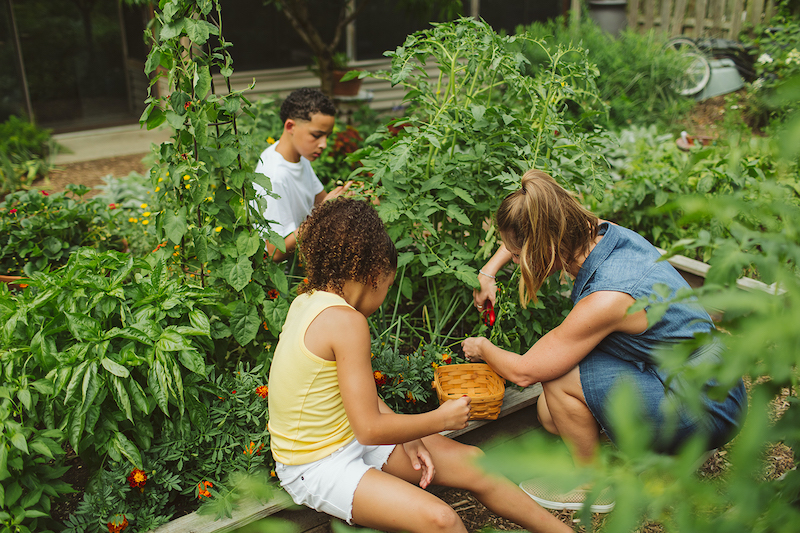Osteospermum, or African Daisy, is a plant that has not shown any toxic traits for either humans or animals. African Daisy is closely related to Calendula, considered one of the best and easiest edible flowers to grow in the garden. The petals of African Daisy add a punch of color to any dish from salads to ice cubes for drinks. Plants explicitly grown for eating should always be free of pesticides or chemical fertilizers.
Another plant that goes by the name African Daisy, Gerbera jamesonii, is also not toxic to people or pets. Gerbera daisies, as they are also known, feature brightly colored flowers, and while they are not edible, they are safe to plant in areas shared with children and animals.

Are African Daisies Poisonous to Children?
Children are rarely harmed by ingesting any parts of African Daisy. The petals are edible, and the stems and leaves are tolerable. Overeating anything can cause stomach upset. Teaching children not to eat plants in the garden without adult approval is necessary. Touching any part of African Daisy does not cause a reaction.

Are African Daisies Poisonous to Dogs?
Dogs are not bothered by ingesting or brushing against African Daisy. No part is poisonous to them, although overeating parts of any plant will cause stomach upset and potentially vomiting, especially in puppies who like to chew. If you suspect that your dog ingested a large amount of African Daisy, contact your veterinarian for further advice and potentially a course of home treatment.
Are African Daisies Poisonous to Cats?
Cats are affected by many different types of Daisy. African Daisy is the least toxic of the commonly called Daisies. Any reaction that a cat will experience from either ingesting parts of the plant or rubbing against the stems and foliage will be noticeable within a short period. Allergic reactions can happen quickly, and for the most part, cats should make a fast recovery.
Symptoms of African Daisy poisoning include vomiting, diarrhea, general stomach upset, avoidance of food, and loss of coordination. If you suspect your cat ingested any amount of African Daisy, contact your veterinarian for further advice.
Are African Daisies Poisonous to Other Animals?
Livestock and other pets do not have reactions to African Daisy. No parts of the plant are toxic. African Daisies do not tend to escape from the ornamental garden into grazing fields where livestock would come into contact with the plant.
Symptoms Of African Daisy Poisoning
Although African Daisies are not considered toxic to most living creatures, a pet or child that ingests too much of any plant can have reactions. Always check with your doctor or veterinarian for guidance if you suspect that your child or pet has ingested African Daisy.
Here are some common symptoms to look out for:
- Stomach upset
- Diarrhea
- Vomiting
- Loss of coordination
- Rash or sores near the mouth or on hands
Preventing African Daisy Poisoning
Keeping children and pets away from ornamental plants is always a good idea, whether you know the plants are toxic or not. Children should not be encouraged to eat any plant from the garden for their safety unless an adult specifically tells them it is okay. Using African Daisies as an edging plant at the front of garden borders is a safe way to keep kids and pets from getting into a planted area. Brushing up against African Daisy does not generally cause any reaction.
Pet Poison Helpline
If something happens to your furry friend, and you suspect they are suffering from African Daisy poisoning, there is a poison control hotline to call for 24/7 vet advice. It is called the Pet Poison Hotline, and its phone number is (855) 764-7661.
Sources: "African Daisy." American Society for the Prevention of Cruelty to Animals. aspca.org
 |
Author Robbin Small - Published 8-31-2022 |
